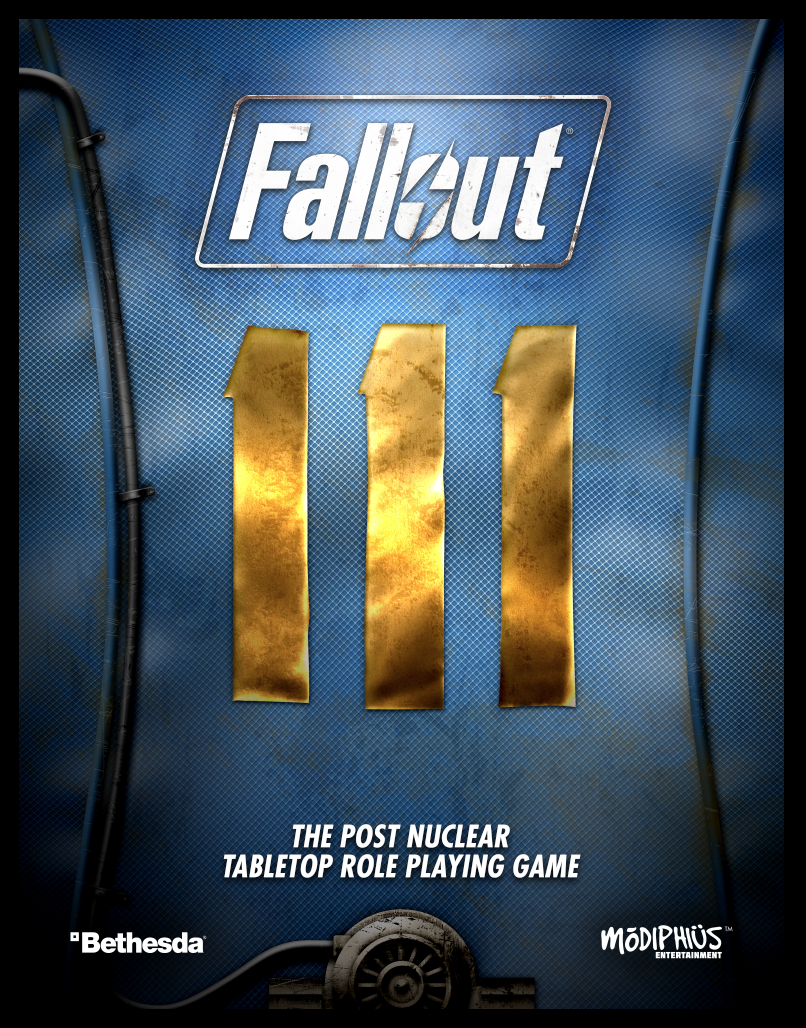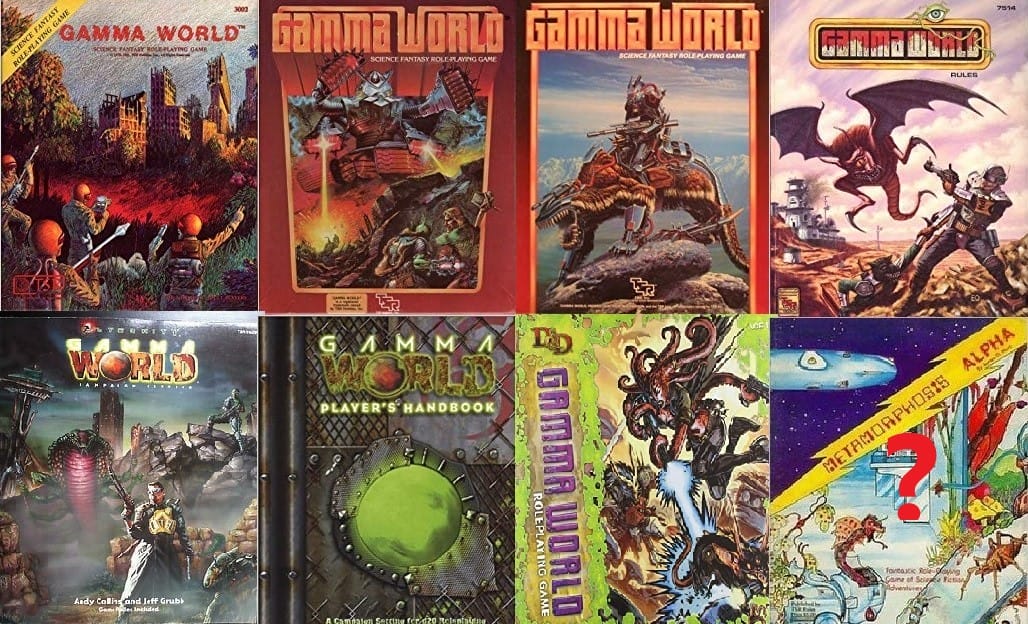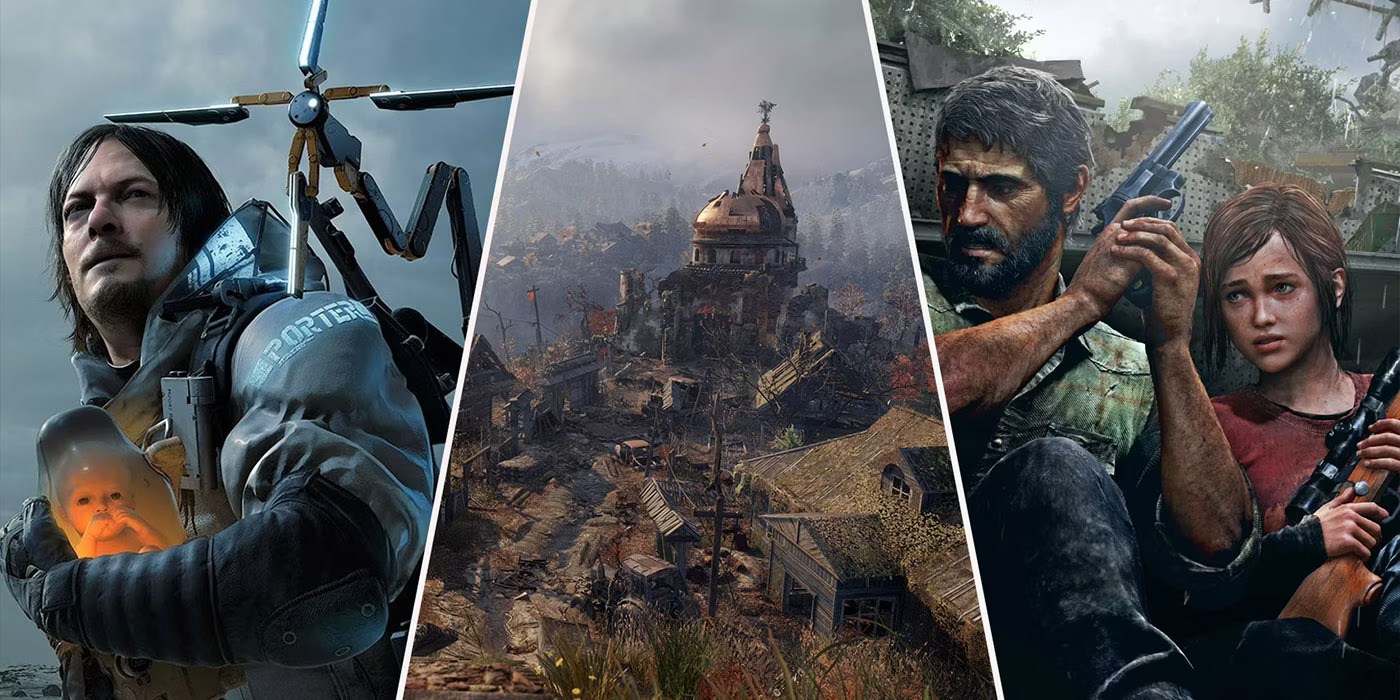Survival is the primary goal, but there is much more to post-apocalyptic tabletop RPGs than that. It’s not merely about killing every zombie you encounter and collecting the most resources from the wasteland. Your character develops with every move, and the story slowly reveals its secrets as the game progresses. This is much more complex than any typical linear game where your path to victory is a done deal; in tabletop RPG you really have to earn it. Over the decades, there have been hundreds of post-apocalyptic Tabletop RPGs for every player level. Some of the best ones are as follows.

Mutant Year Zero
You know the drill in Mutant Year Zero. Players are thrown into a setting which suspiciously doesn’t look that much different from our world, full of mutants. As a matter of fact, you’ll be playing as one of those mutants, and the game couldn’t care less about human civilization of the past. Nuclear radiation and the decaying landscape have done their deeds to alter the genetics of organisms that every living thing is practically a mutant. As the game progresses, however, you slowly reveal some secrets related to the bygone era where humanity once thrived. Some of those secrets would be the key to the future survival of the mutant society.
A unique feature of its mechanics is that players are given the chance to determine collectively which projects to undertake as an attempt to improve their base. And yet, the unpredictable nature of the exploration has the potential to make the narrative run deeper and more complex than you might think. You also have to deal with the scarcity of just about everything, which calls for a strategic resource management. Mutant Year Zero is character-driven, so the choices you make will play major roles in determining the outcome.

Apocalypse World
There’s no way we don’t include Apocalypse World in the list because otherwise it’d be just another blasphemous exercise. It’s the game that brought to the world the “Powered by the Apocalypse” framework; no one will blame you for saying that Apocalypse World single-handedly changed the tabletop RPG forever. As expected from a story-driven gameplay, each move develops the narrative and further intensifies the relationship among players.
It’s a dynamic role-playing game with simple and yet flexible mechanics that even complete beginners can enjoy. Every action (or move) doesn’t always result in an outright success or failure; there’s also partial success, which then gives a different contribution to the unfolding adventures. You’re spoiled by a large variety of settings and stories to add to the excitement in every session.

Aftermath!
We’re not shouting; that’s just how the game title is. In case you need something a little more sophisticated that puts emphasis on a careful approach to your survival strategy, look no further than Aftermath! It has been around since the early 1980s and will probably be here for the long haul. Both the complex mechanics and the rich world building are second to none. If you prefer simulationist style, you’ll definitely appreciate the exhaustive framework and the sense of realism the game delivers. The character creation is as robust as anybody can expect, allowing for an exciting combat system and an expansive skill development.
Fallout: The Roleplaying Game

Even if you don’t play any other game than tabletop RPGs, you’ve definitely heard of Fallout. The first tabletop game of the franchise, Fallout: Warfare, came out in 2001, whereas the first main Fallout game was released in 1997 for MS-DOS (yes, it was a thing) and Windows. Fallout: The Roleplaying Game came into existence in 2021, thrusting you into a world in the aftermath of a nuclear, well, fallout, among what’s left of the pre-war civilization. It’s a high-stakes gameplay to some extent, because your every action in the wasteland affects the narrative a great deal, and every encounter could very well be your last.
Among all the much-welcome features, its S.P.E.C.I.A.L attributes deserve a glowing highlight. Each character can access a wide range of customization options and development paths to make the combat more tactical and nuanced. Some might say it’s still the old-fashioned Fallout game, with factions and mutants fighting for survival. But we don’t see how that’s a bad thing.

Gamma World
Credited as one of the earliest games to offer players an exploration into a world following a societal collapse, Gamma World has been a major name in the post-apocalyptic tabletop RPG market since the early 1970s. Here you have everything you’ll ever want in a gripping, tense gameplay filled with whimsical landscapes, genetic mutations, and remnants of modern technology. It has evolved through several editions, with fresh adventures and rule books introduced along the way. But the good thing is, Gamma World never once loses its core appeals players love and adore.
Most players, especially the new ones, expect post-apocalyptic games to feature bleak visions of the future with barely any hope of survival. Gamma World takes a different approach to the setting and instead gives players a bizarre yet exciting new ecology after the doomsday. From bike-riding badgers to sentient plants, you have it all in one package.
The game mechanics will force you to think outside the box, adapt to changes, and basically be as creative as you can to secure victory. One of the most notable features is the mutation system, which opens the doors to abilities so unique and powerful that you have every chance to change the course of the narrative.
We think every game on the list has its own unique appeal to please every player out there, regardless of the preferred gameplay style. Post-apocalyptic tabletop RPGs are windows to a great variety of exciting worlds reduced to ruins by global catastrophe, but unlike watching films or reading novels, you actually take part in the stories and contribute to all events that unfold. No matter which game you play, all your moves and actions have lasting effects on the world, and that’s precisely why tabletop RPGs are gamers’ favorites.
Can you name some AAA video games that have been made into tabletop RPGs as well? Do you play virtual or in-person tabletop RPGs? We’d love to hear from you.
Other Things You Might Want to Know
Notable mentions:
- Exodus
- Twilight: 2000
- Degenesis
- Hellscapes
- The End of the World series
What makes an excellent post-apocalyptic tabletop RPGs?
Every player has personal preferences, but we think they all can agree that a truly great tabletop RPG has to have engaging narratives, realistic mechanics/character development, detailed world building, unique survival strategies, and of course, emphasis on creativity.
What is the most popular tabletop RPG ever?
That’s easy. Dungeons & Dragons is still the best-known game in the genre and most widely played everywhere, by far.
Check out other articles by month:






